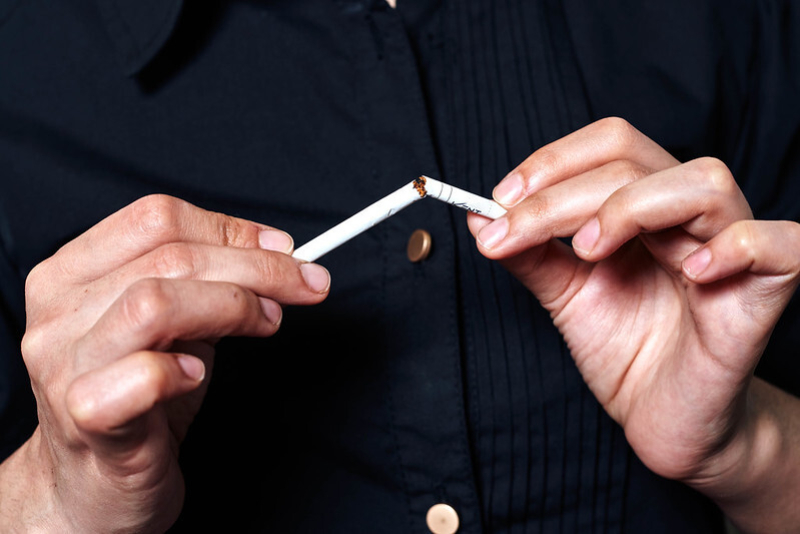Research confirms that stopping smoking and avoiding tobacco smoke is the most important way to improve the prognosis in those with COPD.
Quitting smoking is the single most important step you can take to improve the outcome of your COPD diagnosis. No matter how severe your COPD, stopping smoking can slow further decline and damage to your lungs. It is never too late to stop.

Giving up smoking and vaping can be very difficult but there are tools available to help you in your quitting journey:
For more information about quitting smoking and vaping or to order a Quit Pack, call Quitline 0800-778-778 or visit their website https://quit.org.nz/. Quitline also offer nicotine replacement therapy.
If you have tried to quit smoking with help from a smoking cessation service but have not yet succeeded, you may want to try using an e-cigarette or vape.
E-cigarettes and vapes may help to quit smoking as part of a smoking cessation programme but they are not risk-free. If you use an e-cigarette to help quit smoking, you should stop using the e-cigarettes as soon as possible after quitting smoking.
Reports have shown that certain chemicals used for flavouring in vapes are associated with respiratory conditions. Aside from what we already know about the dangers of vaping, there may be other risks associated with long-term vaping, which are not yet known.
Smoking other things, such as marijuana, can also damage the lungs. There is no substance that is safe to smoke.
If you are tempted to smoke when trying to quit - Remember the 4Ds
· Delay acting on the urge to smoke. Don’t open a pack or light a cigarette. After five minutes, the urge to smoke weakens and your determination to quit will come back.
· Deep breathe. Take a long slow breath in, breathe slowly out again. Repeat three times.
· Drink water. Sip slowly, holding it in your mouth a little longer to savour the taste.
· Do something else. Take your mind off smoking by taking action – put on some music, go for a walk or phone a friend.
If you do have a cigarette whilst trying to stop smoking, don’t be disheartened or stop trying to quit. Instead, it may be time to use your patches, gum or lozenge or speak to a healthcare practitioner.
Thanks to the Quit Group (Cancer Society, Health Sponsorship Council, Te Hotu Manawa Maori) and the Health Funding Authority’s Quit Book, on which this information is based.